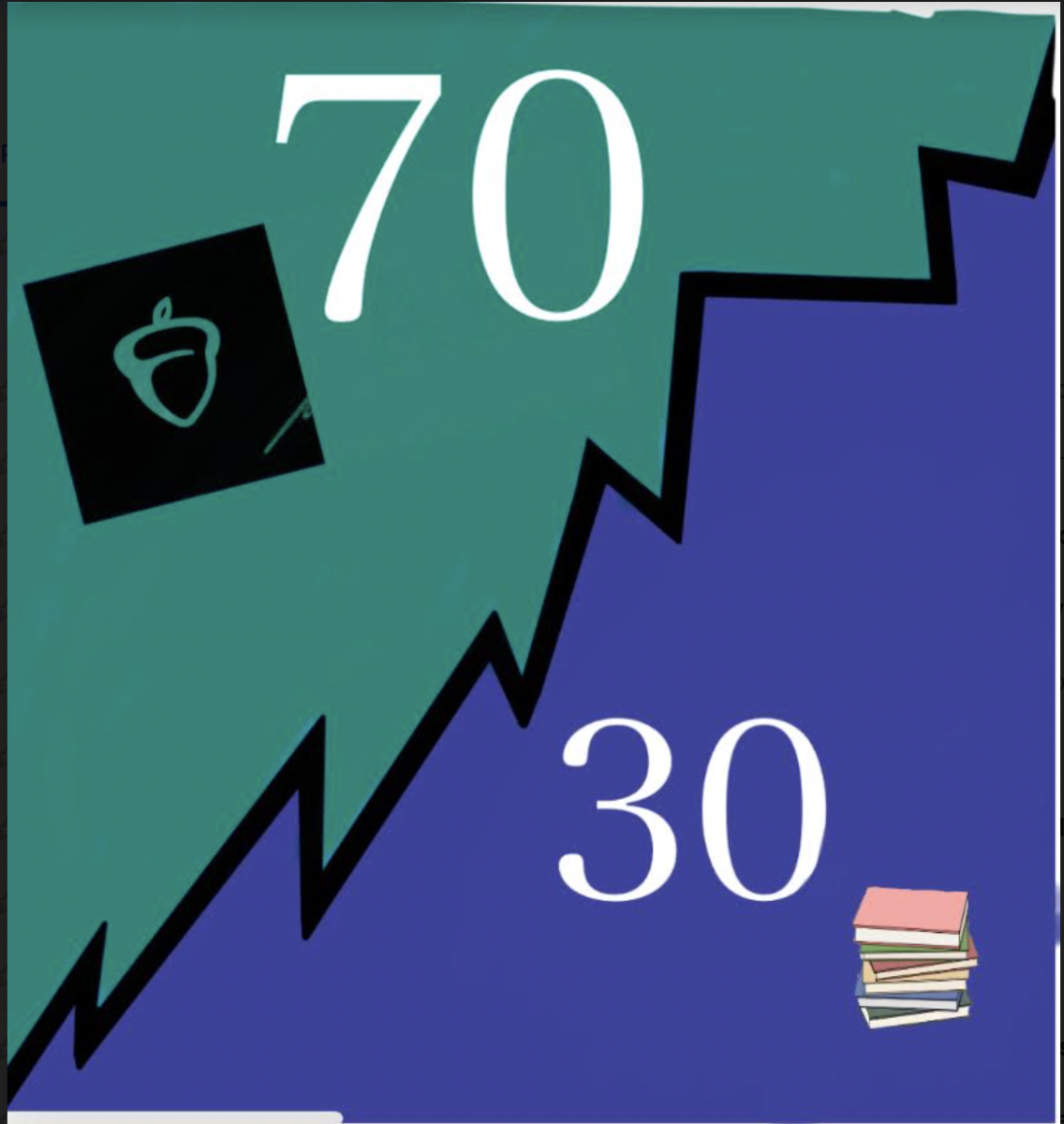With the start of the 2024-25 school year, the Midtown administration has adjusted AP class grading policies, with a larger weighting on summatives and late work deadlines becoming less lenient. This new change has created differing opinions among the Midtown community.
“The biggest change in the grades is the weighting,” mathematics teacher Talyssa Hunter said. “It’s now 70% summatives and 30% formatives versus last year where it was 60 and 40. For absences, if a student has an excused absence, they have five days to make up any missing assignments, and if it is an unexcused absence, it’s an automatic 20% penalty.”
Some students believe changes will largely impact their academic success. Senior Arden Henley believes the shift in weight for summatives will cause her more stress because of her course schedule.
“This puts a lot more stress on tests and other summatives for me because of how much it will affect my grades,” Henley said. “Classwork can’t bring up your grade and help you out as much this year.”
Henley believes the new 70/30 weight distribution will cause her grades to waver more often.
“I think my grades will fluctuate a lot with this change based on just taking one test,” Henley said.
Junior Marin Mimnaugh also believes that the new grading policy changes will impact the consistency of her grades.
“Putting so much more weight on tests and projects is going to make my grade entirely based on summatives,” Mimnaugh said. “It puts a lot of pressure on me for tests. This means that if I do poorly on one test, my grade will entirely shift.”
Hunter expects that these changes will alter the way her students prepare for classes as it forces them to be better organized.
“I think it’s going to help students to be better prepared, better organized and to think before they do or don’t do stuff,” Hunter said.
Henley also believes the new policy will change not only the way she prepares for tests in her AP classes, but how her classmates do as well.
“This policy has the potential to make me a lot more stressed out if I do poorly on something, but it also might encourage me to study more and come into tests more prepared,” Henley said. “This policy change might make students more inclined to study and engage in opportunities to get their grades up.”
Mimnaugh said that her attitude towards late work has changed since the enforcement of the new policies.
“With such a big penalty on late work and being absent, I feel that it motivates me to finish my work and try to not miss school for anything,” Mimnaugh said. “It does make it hard because if you have to miss school for a college or family trip, you end up getting a penalty to your grade.”
Hunter says these changes will ultimately benefit students as it will help them better prepare for college.
“It’s going to help better prepare students for college, because an AP course at the end of the day is a college course, and some students will get an AP credit for the class,” Hunter said.
Despite all of the changes made, Mimnaugh does not view the policies as being entirely negative.
“I would rather have classwork as a higher portion of my grade, but having tests higher could maybe be beneficial to helping students really get prepared for college and inspire students to study more,” Mimnaugh said. “For me, I am going to be stressed by the 70/30 split and will then end up preparing more for my tests. ”
Hunter believes that although students may have a hard time adjusting, eventually they will be positively impacted by these new changes.
“Students don’t like change,” Hunter said. “With change comes resistance, but once they see the benefits of it, I feel like this is what is going to help them in the long run, and that’s what we have to do to prepare students for college.”





















